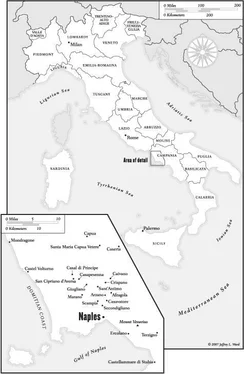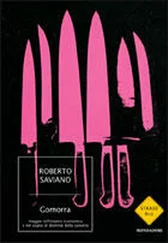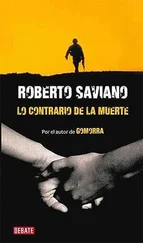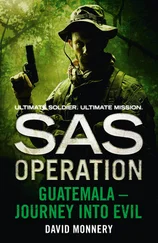Roberto Saviano - Gomorrah - A Personal Journey into the Violent International Empire of Naples’ Organized Crime System
Здесь есть возможность читать онлайн «Roberto Saviano - Gomorrah - A Personal Journey into the Violent International Empire of Naples’ Organized Crime System» весь текст электронной книги совершенно бесплатно (целиком полную версию без сокращений). В некоторых случаях можно слушать аудио, скачать через торрент в формате fb2 и присутствует краткое содержание. Жанр: Старинная литература, на английском языке. Описание произведения, (предисловие) а так же отзывы посетителей доступны на портале библиотеки ЛибКат.
- Название:Gomorrah: A Personal Journey into the Violent International Empire of Naples’ Organized Crime System
- Автор:
- Жанр:
- Год:неизвестен
- ISBN:нет данных
- Рейтинг книги:5 / 5. Голосов: 1
-
Избранное:Добавить в избранное
- Отзывы:
-
Ваша оценка:
- 100
- 1
- 2
- 3
- 4
- 5
Gomorrah: A Personal Journey into the Violent International Empire of Naples’ Organized Crime System: краткое содержание, описание и аннотация
Предлагаем к чтению аннотацию, описание, краткое содержание или предисловие (зависит от того, что написал сам автор книги «Gomorrah: A Personal Journey into the Violent International Empire of Naples’ Organized Crime System»). Если вы не нашли необходимую информацию о книге — напишите в комментариях, мы постараемся отыскать её.
Gomorrah: A Personal Journey into the Violent International Empire of Naples’ Organized Crime System — читать онлайн бесплатно полную книгу (весь текст) целиком
Ниже представлен текст книги, разбитый по страницам. Система сохранения места последней прочитанной страницы, позволяет с удобством читать онлайн бесплатно книгу «Gomorrah: A Personal Journey into the Violent International Empire of Naples’ Organized Crime System», без необходимости каждый раз заново искать на чём Вы остановились. Поставьте закладку, и сможете в любой момент перейти на страницу, на которой закончили чтение.
Интервал:
Закладка:
Giuseppe Quadrano was in Spain as well. He was first a guest in the De Falco villa, then settled in a village near Valencia. He wanted to form a group and tried drug shipments as a way to quickly establish yet another Italian criminal business clan in the south of Spain. But he was unsuccessful. At heart Quadrano had always been a supporting actor. He turned himself in to the Spanish police and declared he was ready to collaborate. He contradicted Nunzio De Falco’s version and situated the homicide within the feud that was unfolding between his group and the Schiavones. Quadrano was the Carinaro neighborhood capo, and Sandokan’s Casalese men recently had killed four of his affiliates—two uncles and his sister’s husband. Quadrano said that he and Mario Santoro had decided to kill Aldo Schiavone, Sandokan’s cousin, to avenge the insult. Before taking action they called De Falco in Spain—no hit can take place without the boss’s consent—but De Falco blocked everything: if his cousin was killed, Schiavone would order that all of De Falco’s Campania relatives be killed. The boss announced that he would send Francesco Piacenti to implement his command. Piacenti did the drive from Granada to Casal di Principe in his Mercedes, the car that became a symbol of this area in the 1980s and 1990s. The journalist Enzo Biagi was shocked when he obtained the statistics of Mercedes sales in Italy for an article he wrote in the 1990s. Casal di Principe was among the top in Europe. But he also noticed another record: Casal di Principe was the urban area with the highest murder rate in Europe. The relation of Mercedes to murders would remain a constant of observation in Camorra territories. Piacenti—according to Quadrano’s first revelation—communicated that it was necessary to kill Don Peppino. No one knew why, but they were all sure that “the Wolf knew what he was doing.” According to Quadrano, Piacenti declared that he would do the killing himself on the condition that Santoro or some other clan member went with him. But Mario Santoro hesitated. He called De Falco to say that he was against the killing, but in the end he gave in. He couldn’t ignore such an important order if he didn’t want to lose the position the Wolf had assigned him as middleman in narcotrafficking with Spain. But he couldn’t accept the murder of a priest, especially without a clear motive, as if it were just like any other task. In the Camorra system murder is necessary; it’s like depositing money in the bank, purchasing a franchise, or breaking off a friendship. It’s no different from the rest of your life, part of the daily routine of every Camorra family, boss, and affiliate. But killing a priest, one outside the dynamic of power, pricks your conscience. According to Quadrano, Francesco Piacenti withdrew, claiming that too many people in Casale knew him for him to take part in the murder. But Mario Santoro accepted, accompanied by an affiliate of the Ranucci clan from Sant’ Antimo named Giuseppe Della Medaglia, with whom he had already executed other operations. According to the pentito, they organized for the next morning at six. But that night the whole commando was tormented. They were restless, couldn’t sleep, and quarreled with their wives. That priest scared them more than the rival clans’ guns.
Della Medaglia didn’t show up at the appointed hour, but in the night he had contacted someone else to take his place: Vincenzo Verde. The other members of the commando were not particularly pleased with his choice, as Verde often suffered from epileptic fits. There was the risk that after the shooting he would fall to the floor in convulsions, foaming at the mouth and his teeth cutting his tongue. So they tried to get Nicola Gaglione to take his place, but he refused categorically. Santoro developed an inner-ear infection and couldn’t stick to any set plan, so Quadrano sent his brother Armando to go with him. A simple operation: a car in front of the church waits for the killers, who walk out slowly after doing the job. Like an early-morning prayer. The hit squad was not in a rush to flee after the execution. Quadrano was invited to go to Spain that very evening, but he refused. He felt safe since Don Peppino’s murder was completely unrelated to their usual practices. And just as the motive was a mystery to them, so it would be to the carabinieri. When police investigations began moving in all directions, however, Quadrano left for Spain. He even declared that Francesco Piacenti had told him that Nunzio De Falco, Sebastiano Caterino, and Mario Santoro were supposed to kill him, perhaps because they suspected he wanted to turn state’s evidence, but that the day set for the hit they saw him in his car with his little boy and decided to spare him.
In Casal di Principe, Sandokan kept hearing his name connected to the elimination of the priest. So he let Don Peppino’s family know that if his men got their hands on Quadrano before the police did, they would cut him in three pieces and throw them on the church grounds. This was not revenge but a clear statement to say that Sandokan was not responsible for Don Peppino’s murder. Shortly after, there was a De Falco clan meeting in Spain to decide how to respond to Francesco Schiavone’s claims that he had nothing to do with the murder. Giuseppe Quadrano proposed killing one of Schiavone’s relatives, chopping him in pieces, and leaving him in a bag outside Don Peppino’s church. A way of making the blame fall on Sandokan. Both factions, each ignorant of the other’s plans, had arrived at the same solution. The best way to send an indelible message is to cut up bodies and scatter the pieces about. While Don Peppino’s assassins were talking about cutting up flesh to seal their position, I was still thinking about the priest’s battle and the primacy of the word. About his incredibly new and powerful desire to place the word at the center of a struggle against the mechanisms of power. Words against cement mixers and guns. And not just metaphorically. For real. To speak out, testify, take a stand. The word, with its only armor: to be spoken. A word that is a vigilant witness, that never stops seeking the truth. The only way to eliminate a word like that is to kill it.
In 2001 the court of Santa Maria Capua Vetere handed down a first verdict: life sentences for Vincenzo Verde, Francesco Piacenti, and Giuseppe Della Medaglia. Giuseppe Quadrano had already begun to try to discredit the figure of Don Peppino. During the cross-examination he mused on a series of motives for the homicide, intending to strangle the priest’s commitment in a noose of criminal interpretations. He stated that Nunzio De Falco had given Don Peppino some weapons, which he then turned over to Walter Schiavone without authorization, and had been punished for this grave transgression. There was also talk of a crime of passion, that he had been killed because he had had designs on the cousin of a boss. Just as calling a woman a slut is enough to put a stop to every sort of fantasizing about her, the fastest way of closing the books on a priest is to accuse him of frequenting prostitutes. It was also said that Don Peppino was killed for not doing his job as a priest, for not wanting to celebrate in church the funeral of one of Quadrano’s relatives. Unbelievable, ludicrous motives, an attempt to prevent Don Peppino from becoming a martyr, to keep his words from spreading, to turn him from a Camorra victim to a clan soldier. People unfamiliar with Camorra power dynamics often think that killing an innocent person is a naive gesture on the part of the clans because it only legitimizes and amplifies the victim’s example and words, a confirmation of the truths he spoke. Wrong. That’s never the way it is. As soon as you die in the land of the Camorra, you’re enshrouded in countless suspicions, and innocence is a distant hypothesis, the last one imaginable. You are guilty until proven innocent. In the land of the Camorra, the theory of modern rights is turned on its head.
Читать дальшеИнтервал:
Закладка:
Похожие книги на «Gomorrah: A Personal Journey into the Violent International Empire of Naples’ Organized Crime System»
Представляем Вашему вниманию похожие книги на «Gomorrah: A Personal Journey into the Violent International Empire of Naples’ Organized Crime System» списком для выбора. Мы отобрали схожую по названию и смыслу литературу в надежде предоставить читателям больше вариантов отыскать новые, интересные, ещё непрочитанные произведения.
Обсуждение, отзывы о книге «Gomorrah: A Personal Journey into the Violent International Empire of Naples’ Organized Crime System» и просто собственные мнения читателей. Оставьте ваши комментарии, напишите, что Вы думаете о произведении, его смысле или главных героях. Укажите что конкретно понравилось, а что нет, и почему Вы так считаете.












